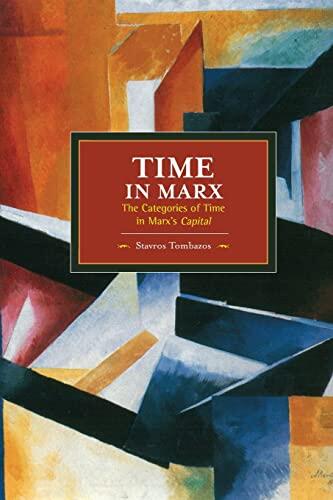
Time in Marx: The Categories of Time in Marxs Capital
Оценок пока нет
Формат
Мягкая обложка
Страницы
327
Язык
Английский
Опубликовано
Mar 17, 2015
Издатель
Haymarket Books
ISBN-10
1608464156
ISBN-13
9781608464159
Описание
Stavros Tombazos explores the intricate relationship between time and economic theory in Marx's Capital. Delving into Marx's philosophical framework, the author examines how time operates as a crucial category within political economy. By unpacking the complexities of temporal concepts in Marx's work, Tombazos sheds light on the broader implications for understanding capitalism and its historical evolution.
The analysis presents a nuanced perspective on how time is intertwined with labor, value, and capital accumulation. Tombazos addresses how Marx's theories challenge conventional views of time in economic discourse, emphasizing the social and historical dimensions of time that are often overlooked in current economic debates. Through this examination, he reveals the dynamic nature of time as it relates to human activity and its consequences on societal structures.
Ultimately, the work calls for a reassessment of time's role in contemporary socio-economic theories, urging readers to reconsider how time shapes their understanding of capitalism and its impact on human life. With a blend of meticulous scholarship and insightful interpretation, the book serves as a vital contribution to the fields of historical materialism and Marxist theory.
The analysis presents a nuanced perspective on how time is intertwined with labor, value, and capital accumulation. Tombazos addresses how Marx's theories challenge conventional views of time in economic discourse, emphasizing the social and historical dimensions of time that are often overlooked in current economic debates. Through this examination, he reveals the dynamic nature of time as it relates to human activity and its consequences on societal structures.
Ultimately, the work calls for a reassessment of time's role in contemporary socio-economic theories, urging readers to reconsider how time shapes their understanding of capitalism and its impact on human life. With a blend of meticulous scholarship and insightful interpretation, the book serves as a vital contribution to the fields of historical materialism and Marxist theory.
Обзоры
Отзывов пока нет
Станьте первым, кто оставит отзыв о этой книге и поделится своими мыслями
Добавить первый отзывЖурнал чтения
Журналы чтения не найдены
Начните отслеживать ваш прогресс в чтении, чтобы видеть записи здесь
Добавьте ваш первый журнал чтенияЗаметки
Журнал транзакций
Журналы транзакций не найдены
Начните отслеживать ваши книжные транзакции, чтобы видеть записи здесь
Добавьте ваш первый журнал транзакций